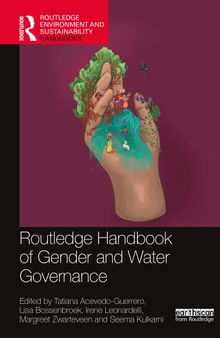 جزییات کتاب
جزییات کتاب
This handbook provides a comprehensive overview of the field of gender and water governance, exploring how the use, management and knowledge of water resources, services and the water environment are deeply gendered.In water there is a recognized gender gap between water responsibilities and water rights and bridging this gap is likely to help achieve not just goals of equity but also those of sustainability. Building on a rich legacy of feminist water scholarship, the Routledge Handbook of Gender and Water Governance is a collection of reflections and studies that can be used as a prismatic lens into a thriving and ever proliferating array of feminist water studies. It provides a clear testimony of how hydrofeminism has evolved from rather instrumental gender and water studies to scholarship that uses feminist tools to pry open, critically reflect on and formulate alternatives to water development-as-usual. The book also shows how the community of feminists interested in studying water has diversified and expanded, from often white female scholars studying projects and gender relations in the so-called Global South, to a varied mix of scholars and activists theorizing from diverse geographical and political locations – prominently including the body. It is organized into five interconnected parts:Part I: Positionality and embodied watersPart II: Revisiting water debates: diplomacy, security, justice and heritagePart III: Sanitation storiesPart IV: Precarious livelihoodsPart V: New feminist futuresEach of these parts brings out the gendered nature of water, shedding light on the often neglected care and unpaid labour of women and its relationship with extractivism and socioeconomic inequalities. The overall aim of the handbook is to apply social science insights to water governance challenges, creating synergies and linkages between different disciplines and scientific domains.The Routledge Handbook of Gender and Water Governance is essential reading for students, scholars and professionals interested in water governance, water security, health and sanitation, gender studies and sustainable development more broadly.



 دانلود کتاب
دانلود کتاب

 جزییات کتاب
جزییات کتاب





 این کتاب رو مطالعه کردید؟ نظر شما چیست؟
این کتاب رو مطالعه کردید؟ نظر شما چیست؟
